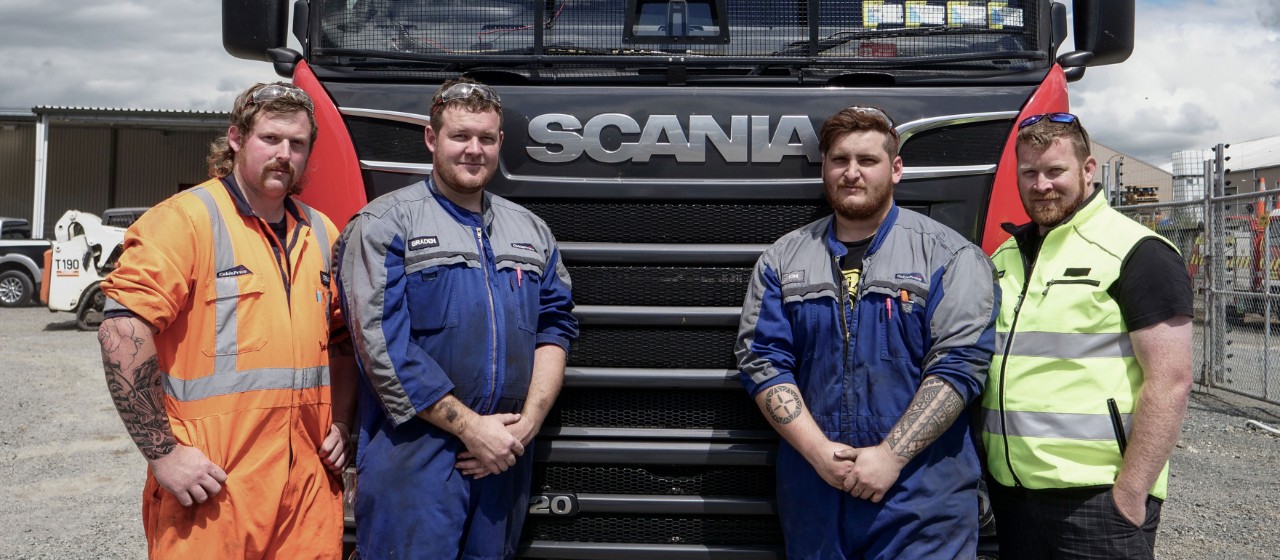
New Zealand champions seek redemption in 2018
25 SEPTEMBER 2018
After nearly winning the Top Team World Championship in 2013 and then losing the 2015 New Zealand championship to eventual world champions Christchurch, the CablePrice Whangarei team have their sights set on victory this time around.
“We were just about to get where we needed to be when the Aussies slammed the buzzer down,” team leader Scott Cann explains, recalling how the Whangarei crew took second in the 2013 Top Team world championship. “It was disappointing.”
Last year, Whangarei beat Christchurch in New Zealand’s national final and will represent their country at the 2018 regional final in Malaysia. “We didn’t go into it with high hopes,” says technician Tom Hicks, who explains that the Whangarei team, who had just two returning members, was young and inexperienced compared to some of the others.
Preparing for 2018
Despite their unexpected victory, the team has worked hard to prepare for the regional final. Practicing with CablePrice trainer Russell Dixon, the team has been going through exercises that mimic the types of scenarios they will encounter in the competition, in addition to studying theory.
Technician Craig Lucas, the newest member of the team, only began working on Scania products a few months before competing in last year’s national final, and he says Top Team is motivating him for familiarise himself with Scania. “I’m even finding now that I’ve got a bit more of a want to fix something,” he explains.
Senior technician Braden Olsen agrees, saying, “You might fix something but then actually look into how it works, how different things affect each other.”
Kiwi technicians among the world’s best
It doesn’t take much time in New Zealand to notice the wide variety of trucks on the road – including Japanese, American, and European makes. And it’s not just a wide variety of makes – there are also decades of Scania trucks on the road. It’s not uncommon to see 4-series trucks, and even the occasional 3-series, still in everyday use by fire stations and small transport firms.
This variety of vehicles (Scania’s New Zealand dealer, CablePrice, also services other truck makes), combined with the country’s geographic isolation and longer wait times for parts, means that Kiwi technicians are often used to working on different makes and models and sometimes have to come up with innovative solutions to get trucks back on the road. “You’ve got to learn to fix everything,” says Cann.
Referring to a customer who came in during the morning with a coolant leak, Olsen explains the pressure, “As soon as his truck is in the shop, he’s not making any money. So we have got to get him back on the road.”
That customer, KJ Murray, is perhaps a good example of a typical small transport operator in New Zealand. An owner-driver, Murray has had Scania trucks for decades, starting with a 3-series truck. His current vehicle is a seven-year-old Scania R 580 that he’s driven more than 1.2 million kilometres. When asked how long he’ll have it, he answers, “’Til it dies.”
Murray says he typically drives around 700 kilometres a day and relies on uptime and quick turnarounds when something does go wrong. Today, the workshop has the needed part in stock and Olsen fixes the coolant leak, flushes the system, and has Murray out of the workshop and back on the road in under an hour. “It’s like a work family,” says the driver. “They’ll go the extra mile for owner-drivers like myself.”
More than just a competition
According to team leader Cann, there’s a synergy between the crew’s Top Team training and their ability to do the quick work their customers demand, “The guys who did it last time, they’re leaps and bounds over where they were at the start of it.”
Referring to the 2013 team, Cann says, “These guys might go on one or two training courses a year, but we had probably 20 or 30 over the course of 14 months.”
While they’re looking forward to both the training and the competition, Olsen admits, “We’ll be pretty happy just for the trip.”